SurinameMapFebruary 18–21, 2008 A long time ago, when I was very little, my parents would occasionally leave my brother and me with our grandparents. They had a TV, and we didn’t have one at home. My favorite TV show back then was International Panorama. The reports about unemployment and protest crackdowns around the world would inevitably end up offering glimpses of material culture, which is precisely what appealed to me so much (in fact, nothing has changed with age). One of the stories was about Suriname. The only thing I remembered from it, aside from the country’s name, was that the phone booths in Suriname are yellow. This information, hardly useful on the face of it, stayed lodged in my memory for several decades. And here I am in Suriname. 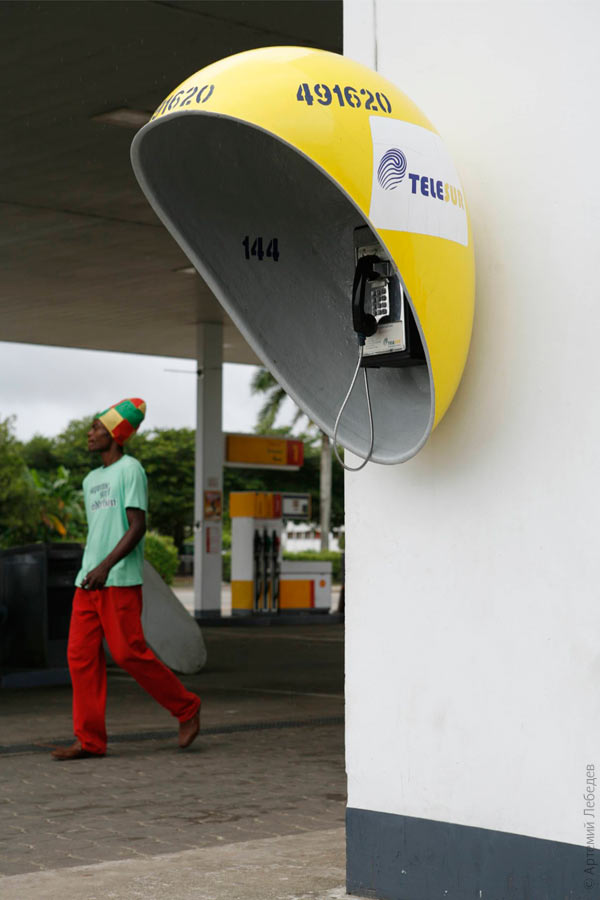 What a joy it is to relive your childhood memories. These half-booths are also installed two or three to a pole here, by the way. 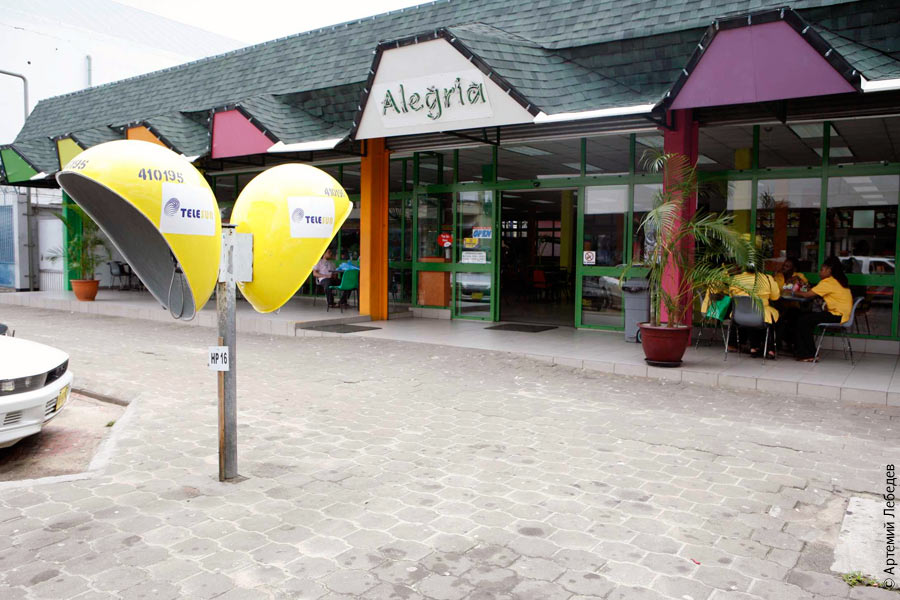 Incredibly enough, Suriname’s capital turned out to be Paramaribo. I had never connected those two words in my head before. But I knew Paramaribo from an old Russian song. “Paramaribo, city of the dawn...” Until 1975, Suriname was called Dutch Guyana (and Guyana was British Guyana). So when Germany occupied the Netherlands in May 1940, the Dutch colonies began expropriating all German property and interning Germans. A large German cargo ship, Goslar, was stationed in Paramaribo’s port at the time. When news of the invasion broke out, the ship’s crew was given half an hour to collect their personal belongings before vacating. The crew made good use of this time and sank the ship in the harbor. 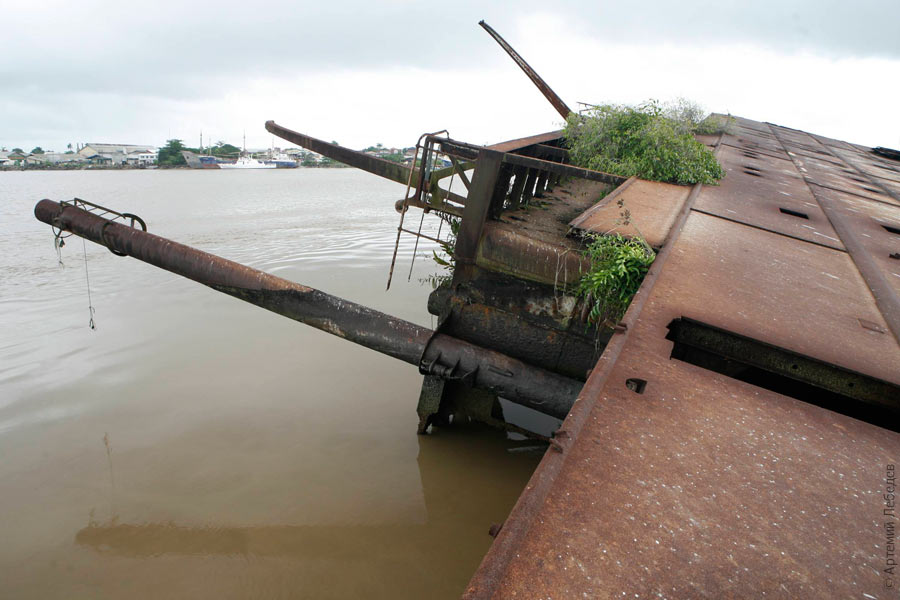 Goslar continues to sit right in the middle of Suriname River to this day, bringing to mind the whale from one of the Sinbad the Sailor stories—a beacon was attached onto the ship’s hull, and its rusty silhouette has long been a familiar part of the cityscape.
“Lo and behold, our sailors sight 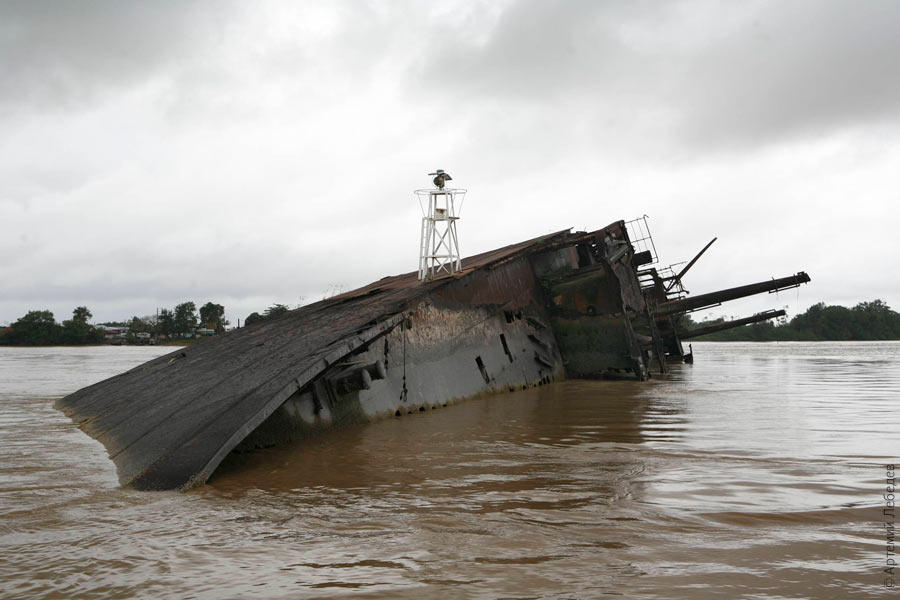 Even the curve of the new bridge, opened in 2000, follows the curve of Goslar. 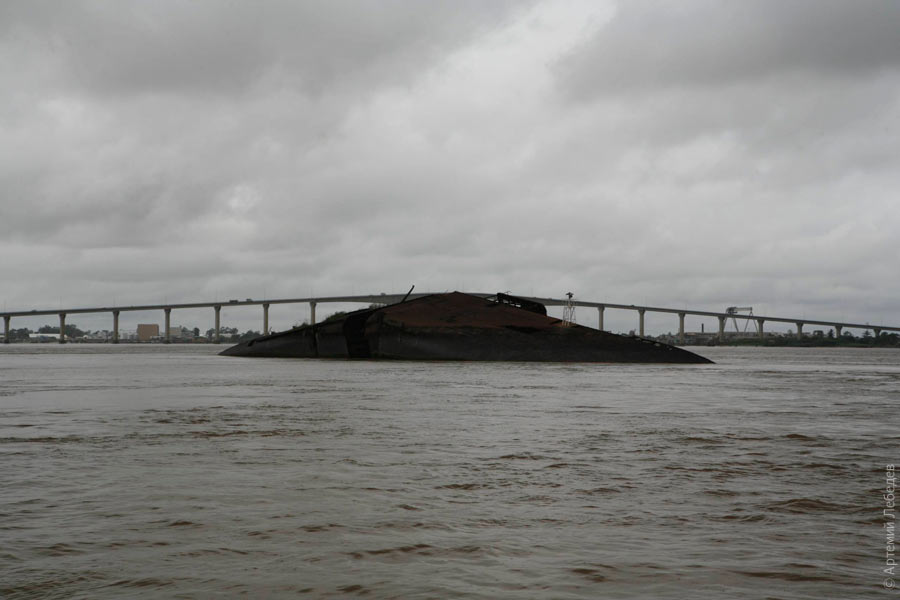 This is what South American Holland looks like. 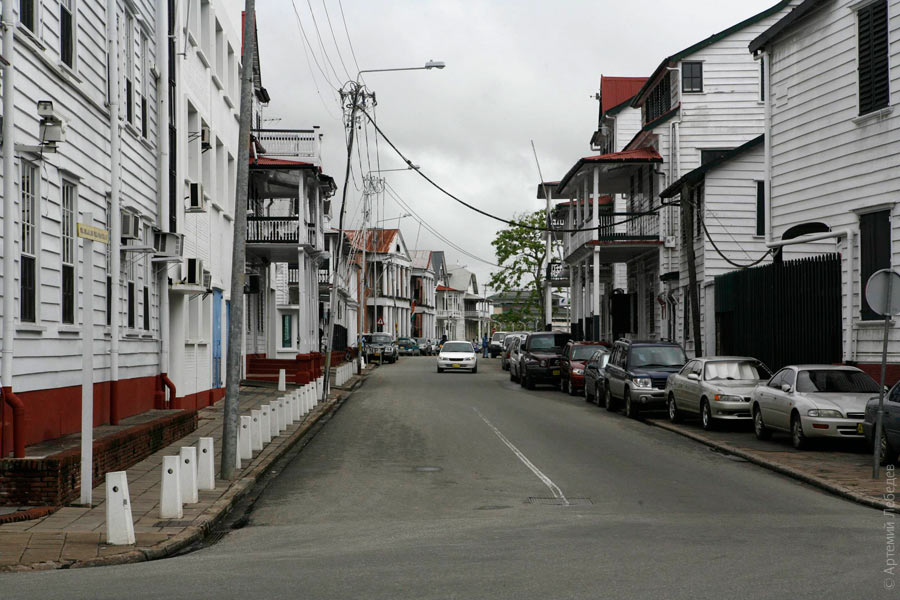 The only difference is that when a KLM flight from Paramaribo lands in Amsterdam, all the passengers are frisked three times more thoroughly. Same as with flights from the former southern Soviet republics arriving in Moscow. 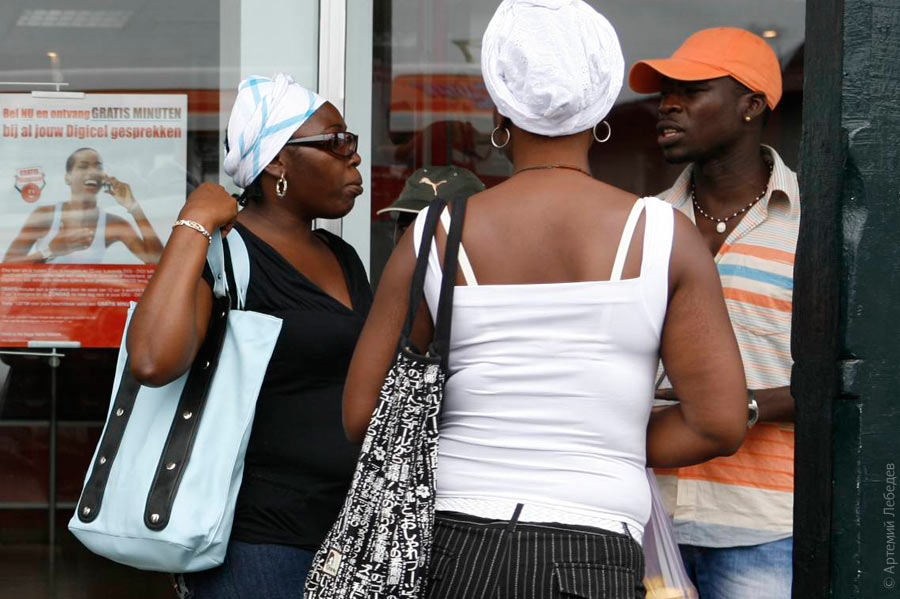 The center of the city is surprisingly beautiful and interesting. Some of the old houses haven’t survived to the present day, but for some reason their front steps have all been left in place. 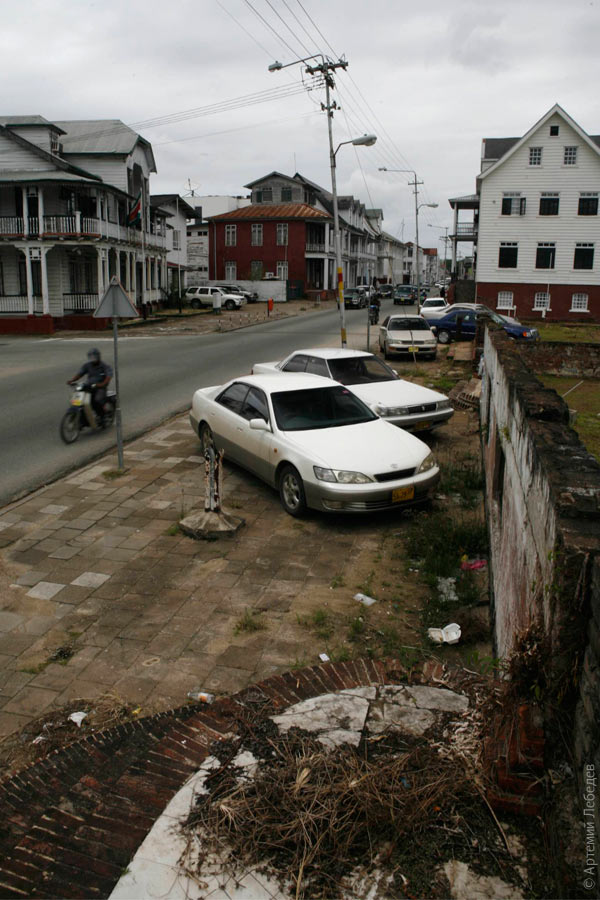 There are lots and lots of historical buildings here. So the entire inner city has been declared a UNESCO World Heritage Site (like Bruges). 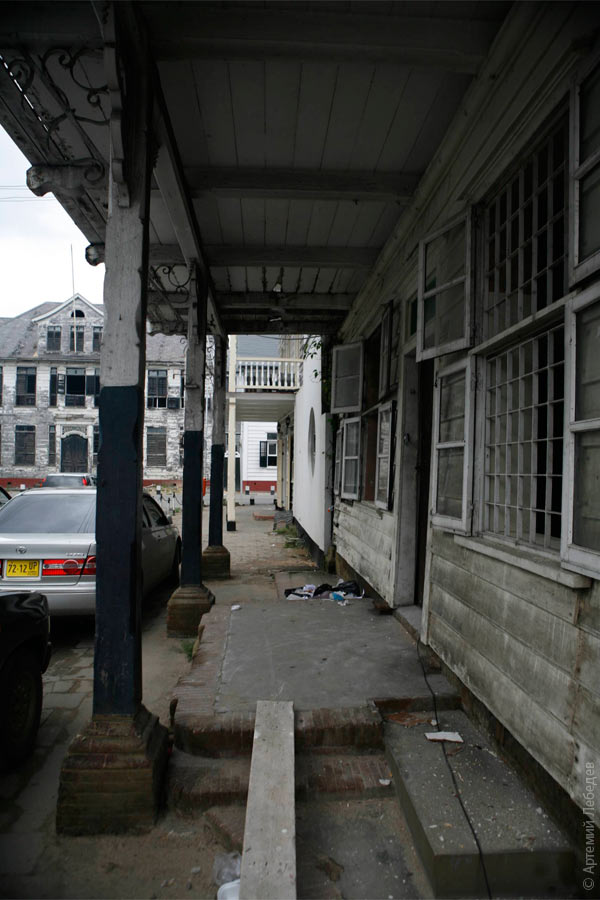 It’s interesting to see how the exact same buildings look under different owners. 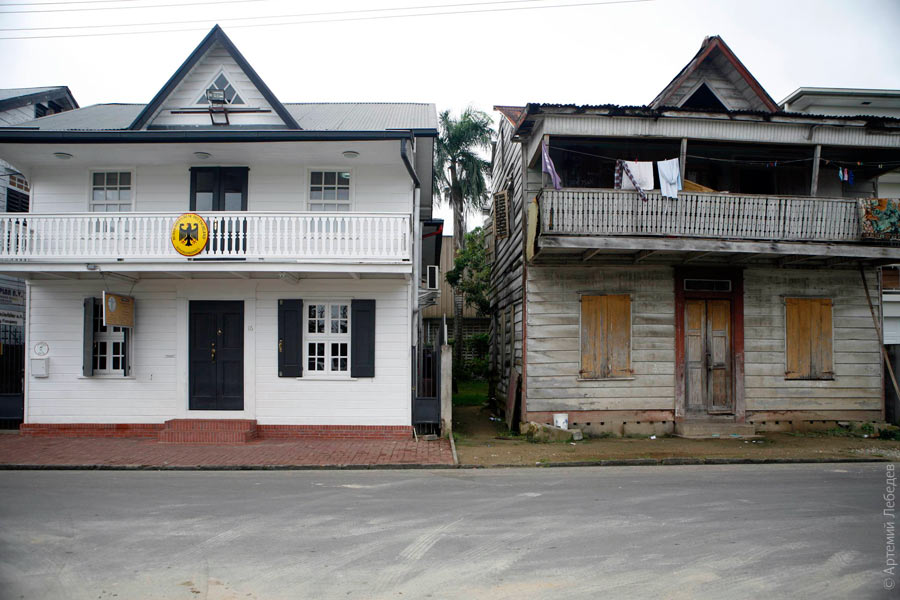 A sign prohibiting parking (NP stands for “niet parkeren”). 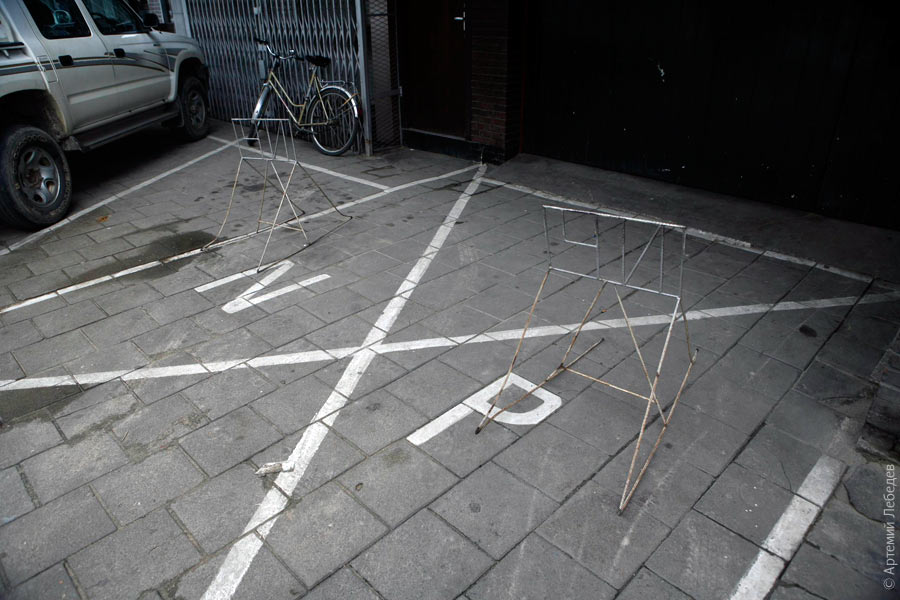 Another homegrown sign: an adult man with a briefcase chasing a little girl. The rest of the signs are like in Europe. 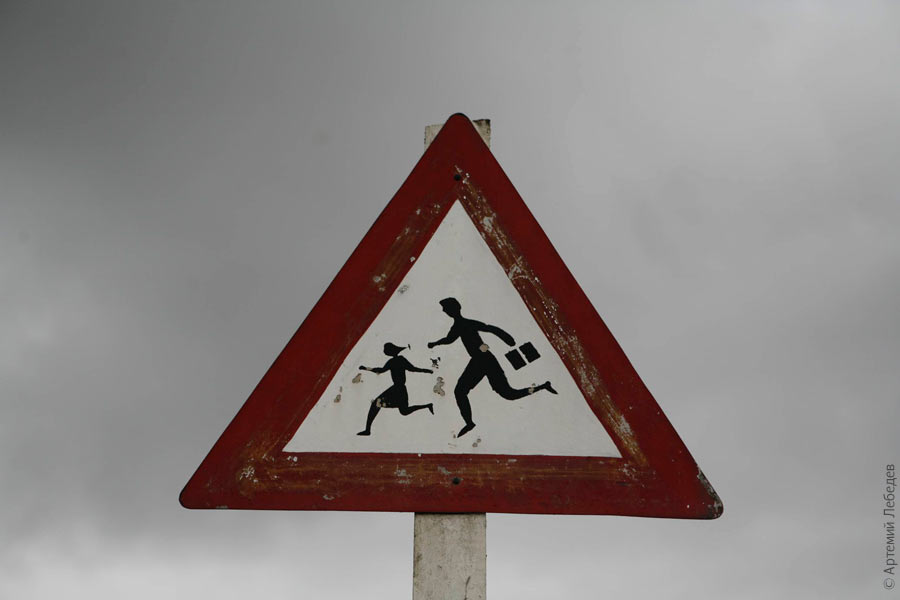 All the signs and traffic lights used to be mounted on striped posts (a few of these rare specimens can still be found in the city). 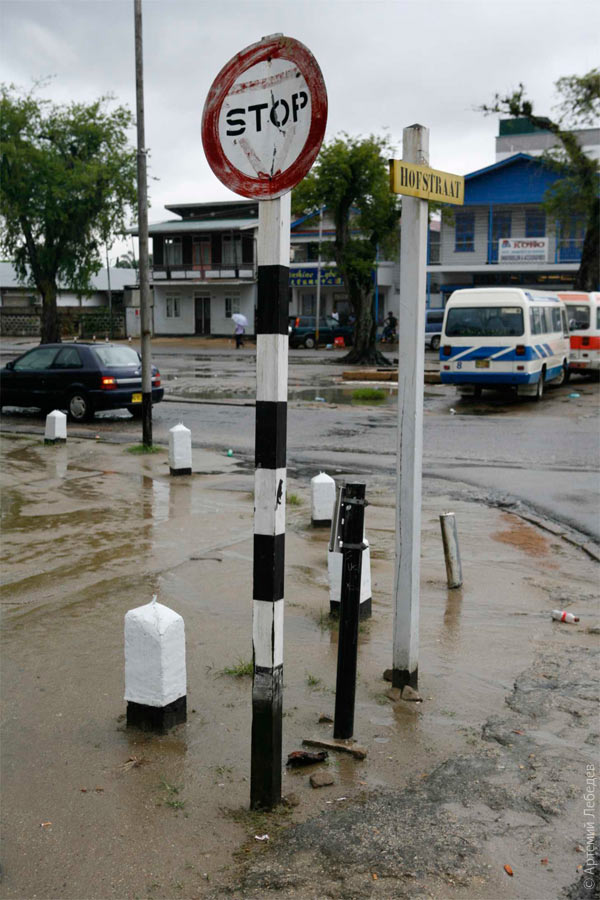 Nowadays, everything is mounted on soulless metal poles. Also notice the concrete bollards: Suriname’s favorite type of physical obstacle. 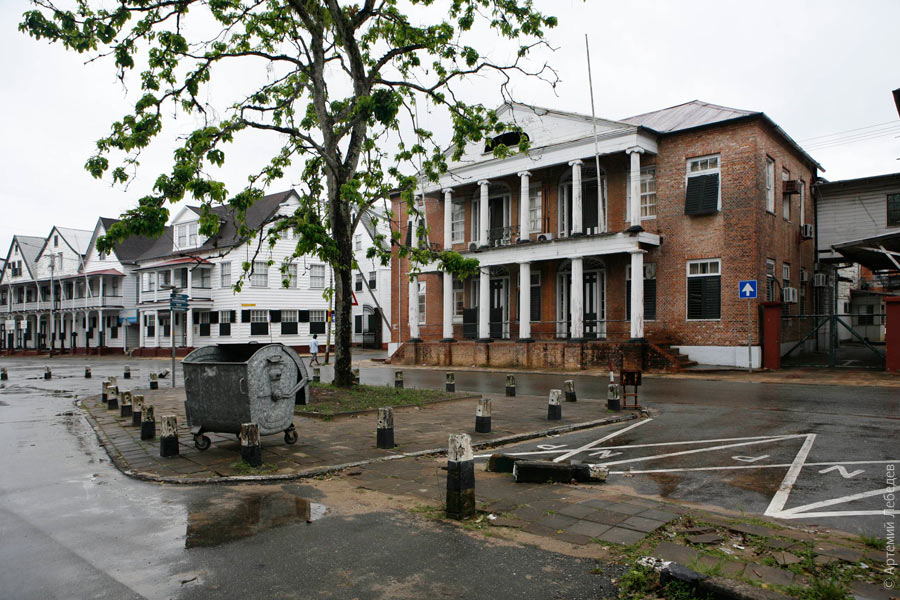 These concrete impediments vary quite widely in shape and color. 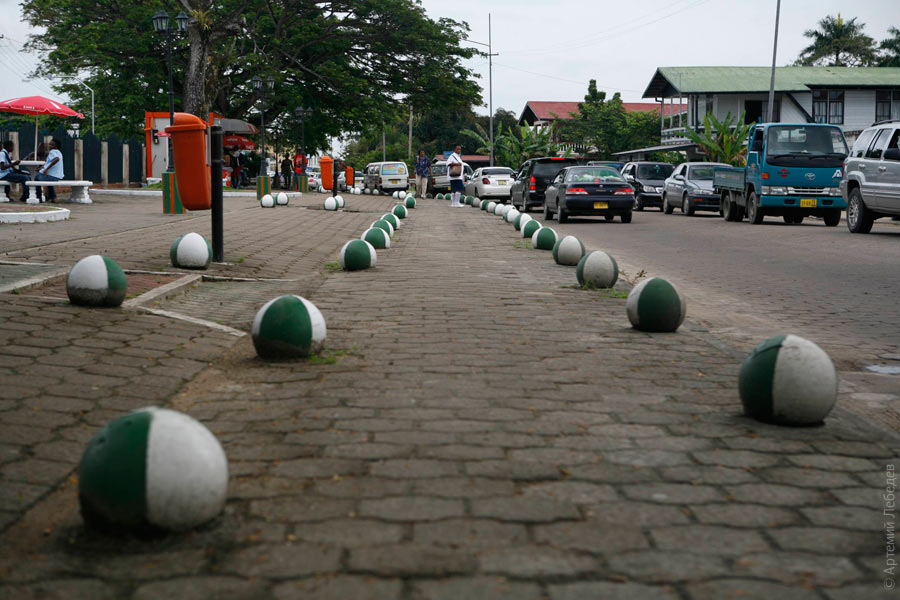 But back to the stripes. I was lucky to catch Paramaribo at a rare moment in the life of any city: the old traffic lights were in the process of being replaced with new ones (Moscow, by the way, has also been replacing all its downtown traffic lights since the beginning of 2008). The old model, mounted on a striped post, is still functioning. 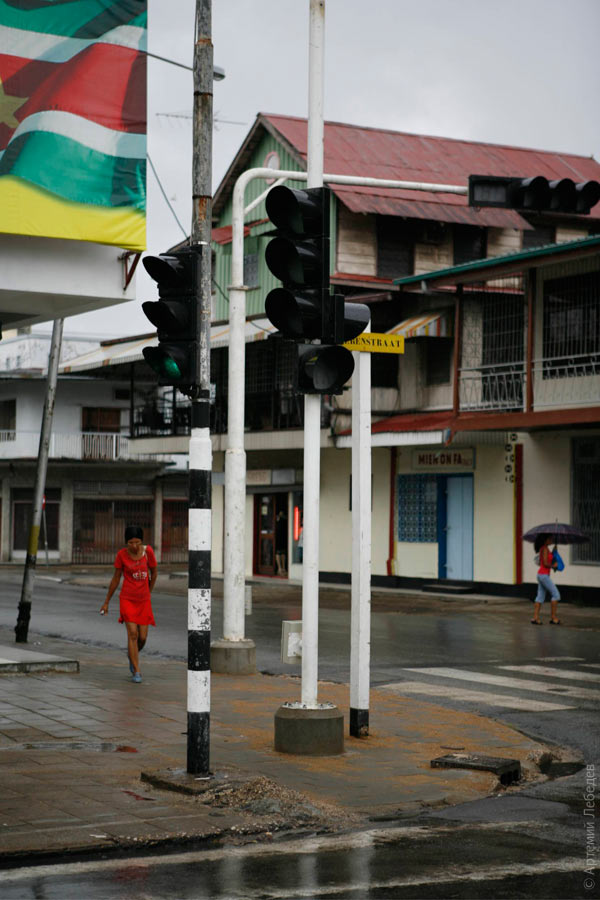 And here’s an old light that has already been disconnected and is waiting to be taken to the scrap heap. 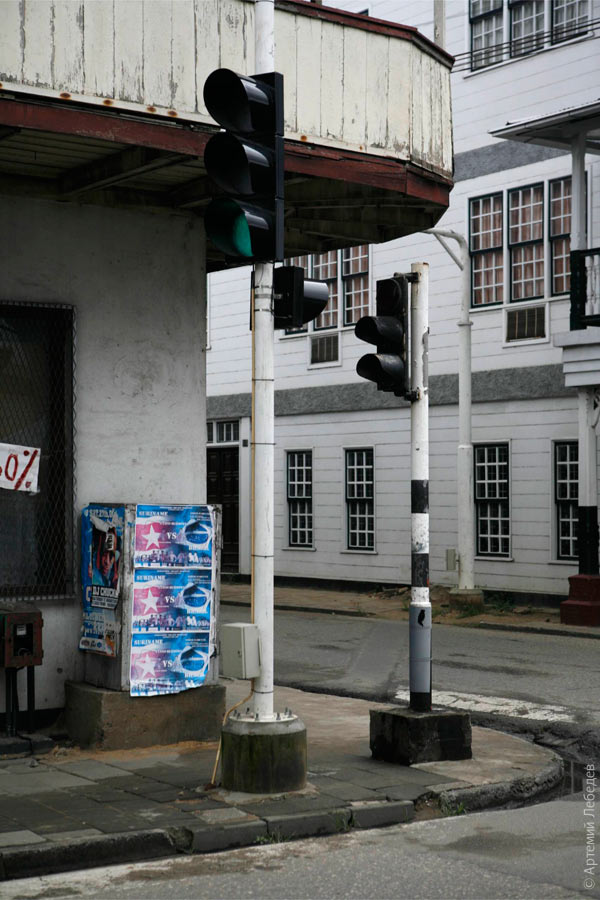 One Surinamese dollar contains 100 cents. What is a coin worth 100 cents called? The answer will follow later in the text. Some of the streets are crooked, so they have special insulated pivot points for the power lines. 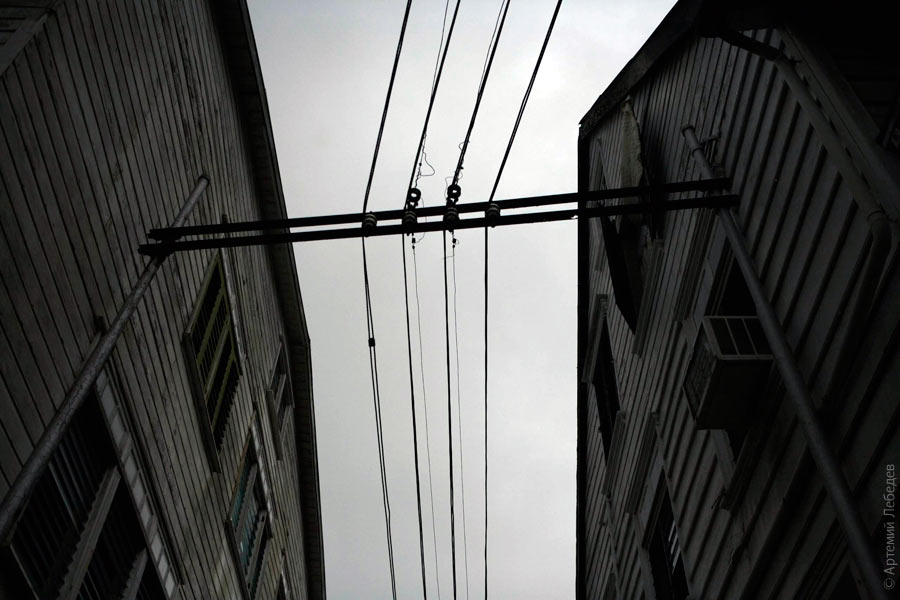 But even more interesting is the Surinamese system for wires crossing above a street intersection. You won’t see this anywhere else. 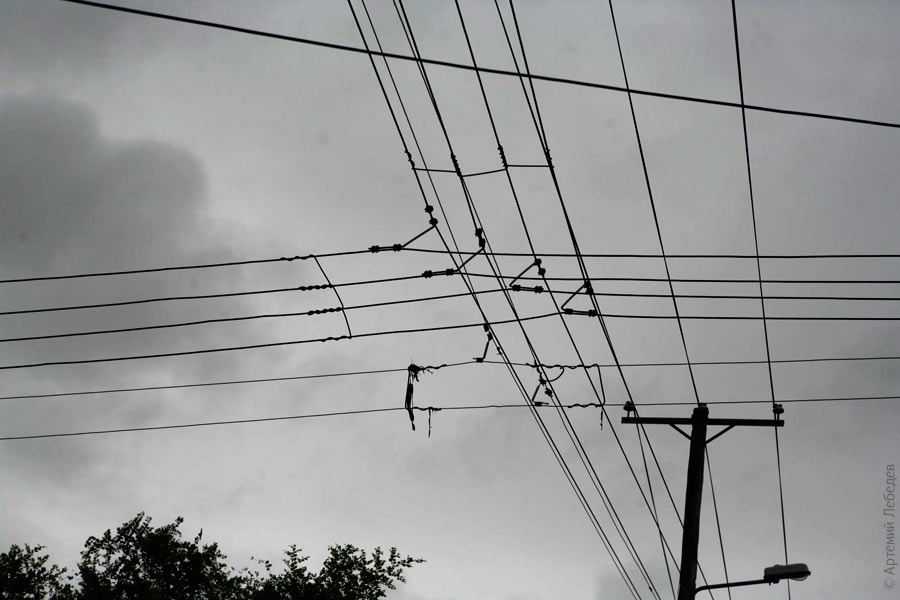 In Suriname, a coin with a value of 100 cents is called “100 cents.” Some utility poles in the countryside have special skirts around their perimeter. None of the locals were able to explain their purpose to me. To prevent snakes from crawling up? Unclear. 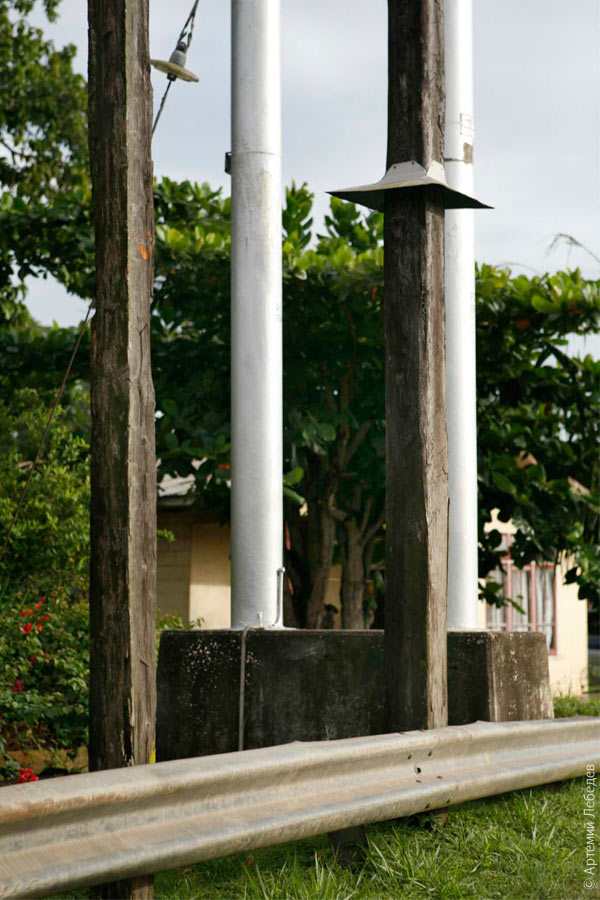 A post box for outgoing mail: 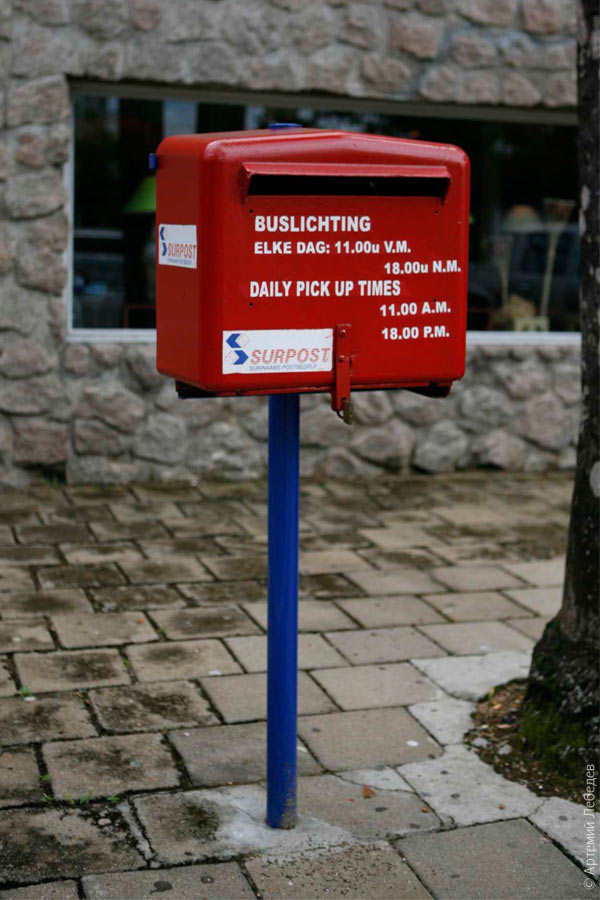 Letterboxes for receiving mail almost always have unique and unusual shapes. 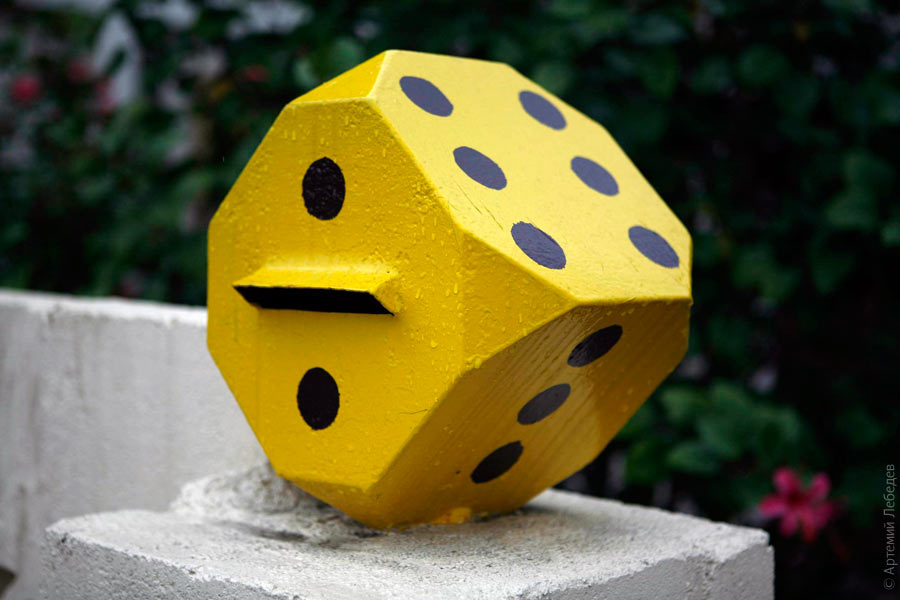 Garbage bags are put out on tall stands so that they’re easier for the collectors to pick up (just like in Chile). 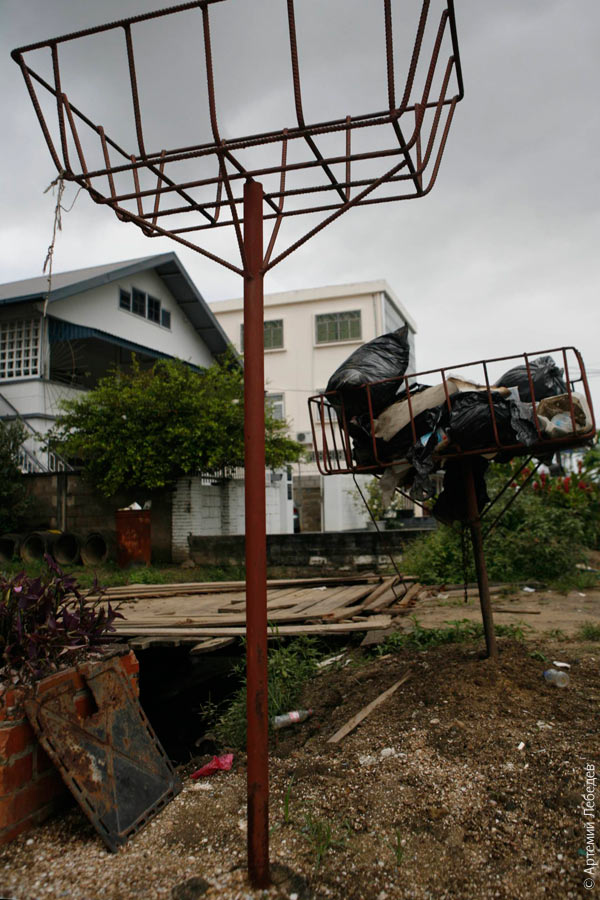 There are taxi advertisements on every pole. You might assume that these are all taxi companies, but in fact they’re individual drivers. It’s just that they all come up with names for themselves. 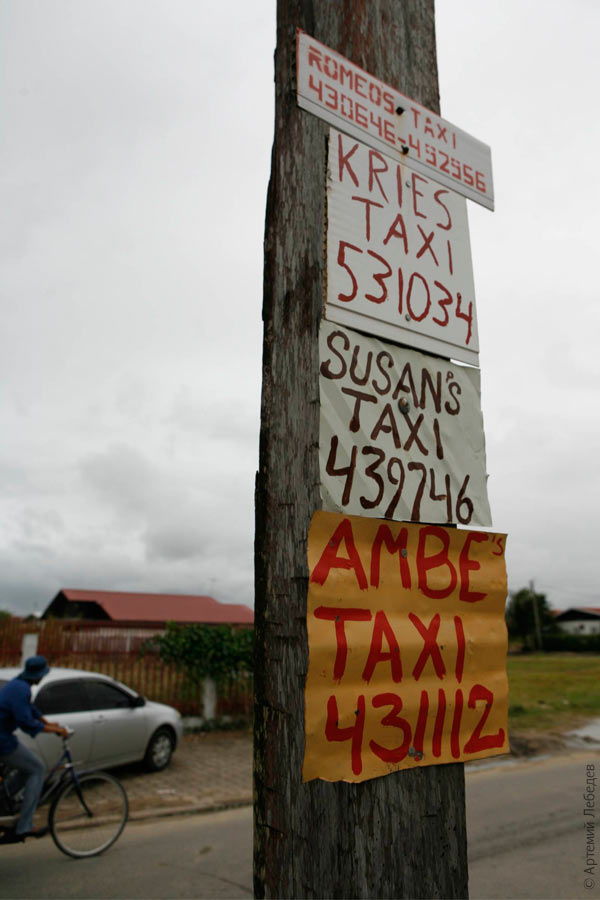 The buses here aren’t as insanely decorated as in India, but they’re always decorated nonetheless. 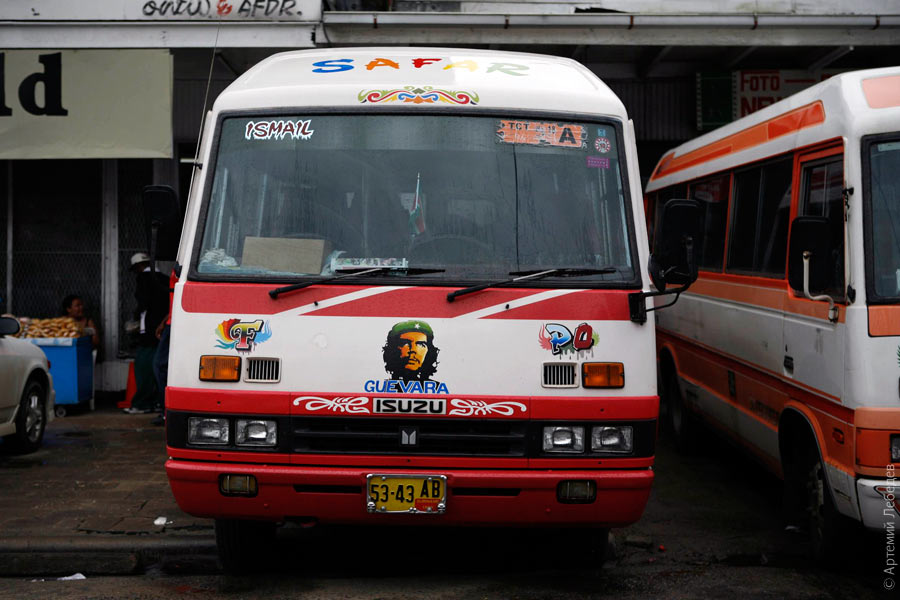 Plate numbers all follow the same pattern: four numbers plus two letters indicating the type of vehicle (bus, taxi, private car and so on). The letters are always raised, and sometimes you’ll even see vehicle inspection stickers under them. But usually these stickers are on the windshield. 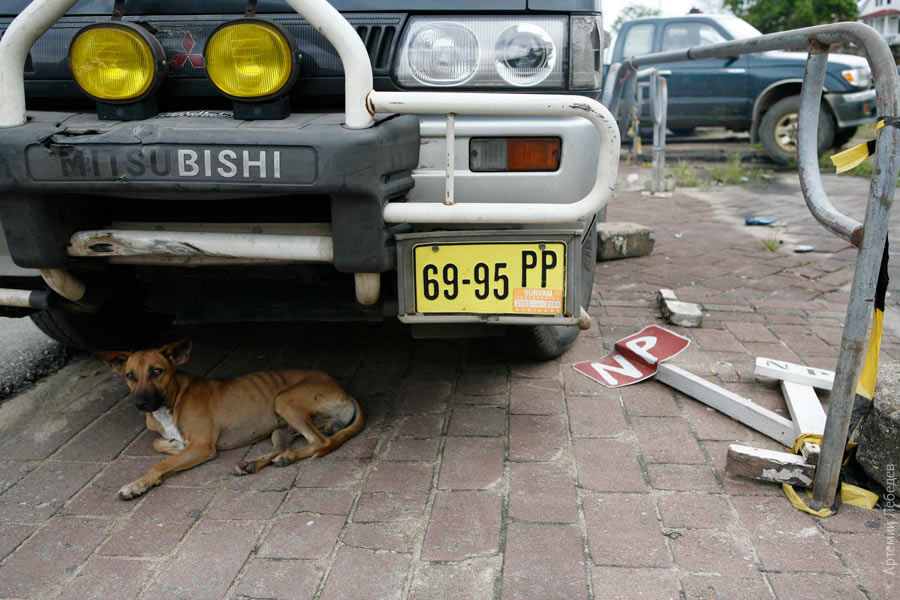 A folksy advertisement for sardines in tomato sauce. There’s something very reminiscent of home in this billboard. 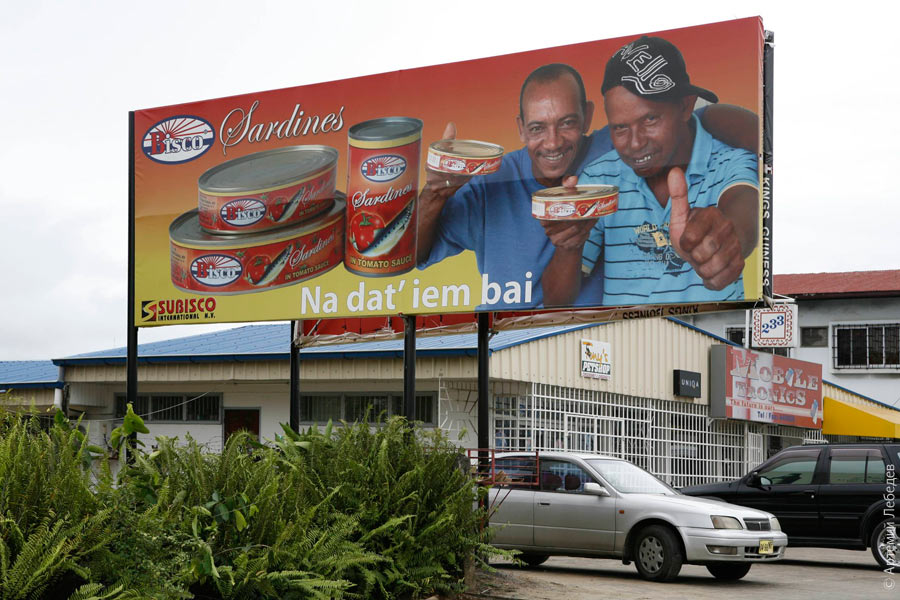 Surinamers are incredibly concerned that the Chinese are taking over their commerce. Even poor George IV ended up with some telling cheekbones. 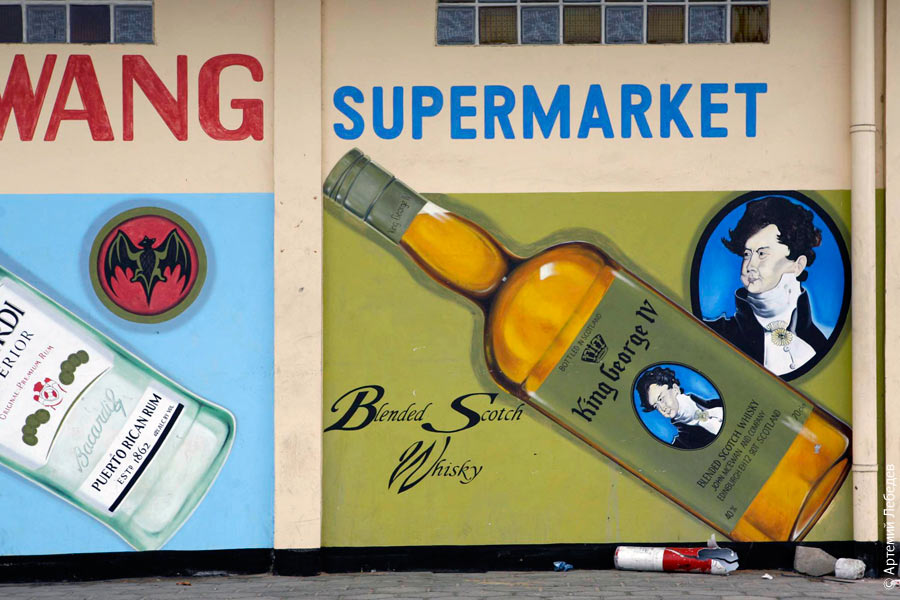 People share horror stories about how one of their own was turned down for a lease, but a Chinese person got approved. 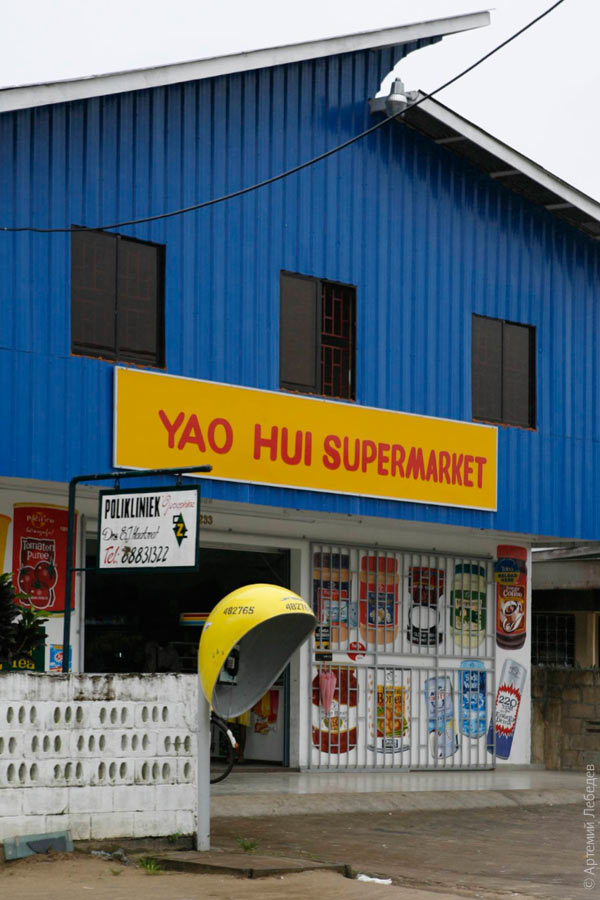 Interestingly, the Chinese write their shop signs in Chinese and English, but completely ignore Dutch. 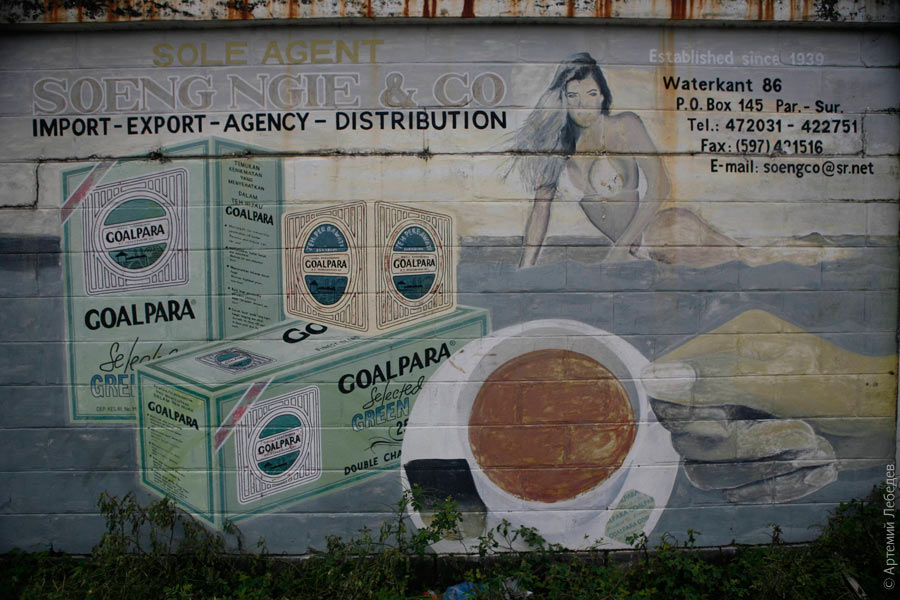 In case of possible bouts of xenophobia and kleptomania, some Chinese grocery stores are protected with cages inside. 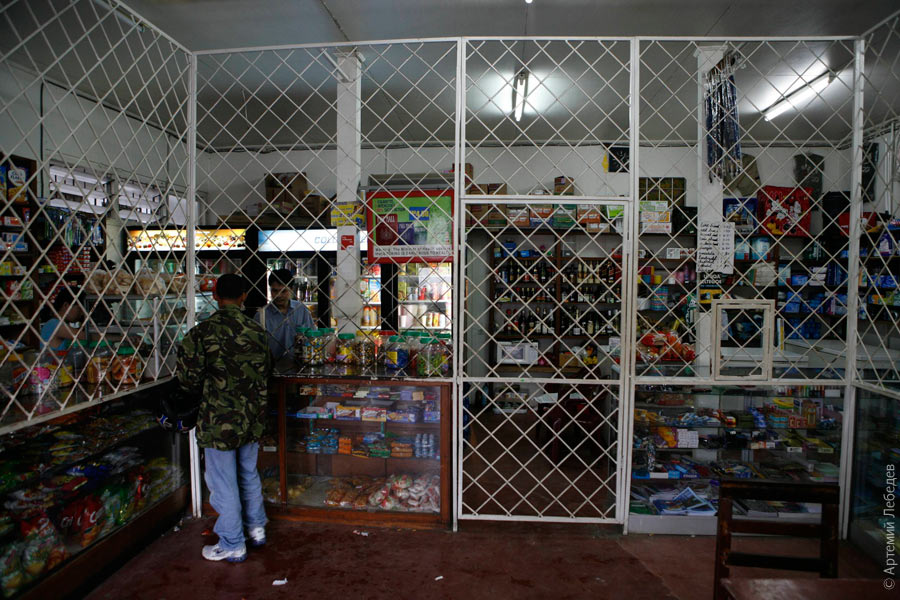 A Surinamese village is a surprising combination of the modern and the primitive. Half the homes have corrugated fiber cement roofing, the other half have straw. 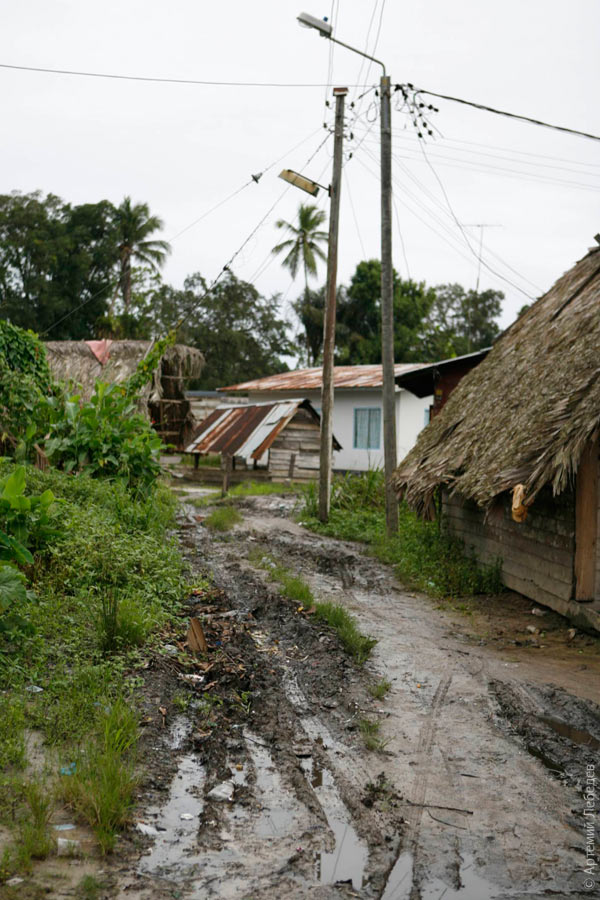 The first thing a visitor needs to do is go to the elder’s tent and pay his respects—in the amount of five dollars, which also goes towards compensation for photography. However, the very first villagers you encounter (with beer and cigarettes) will declare that you’re not allowed to photograph them, because what if you publish the photo in a calendar and sell it in every kiosk? 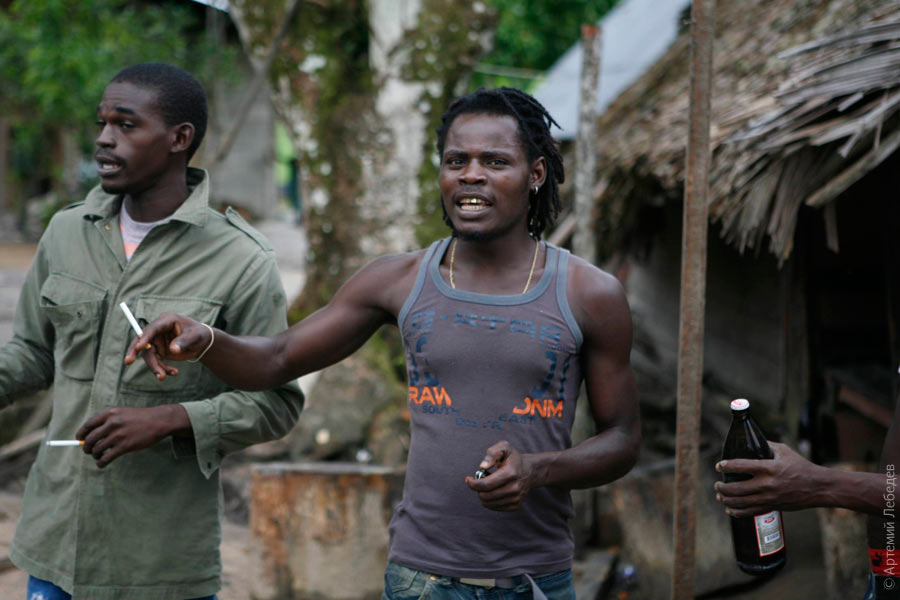 The locals are convinced that white people take photos for profit, so they demand money for every shot. Outside the next house is an old man in rubber boots and a topless old woman. 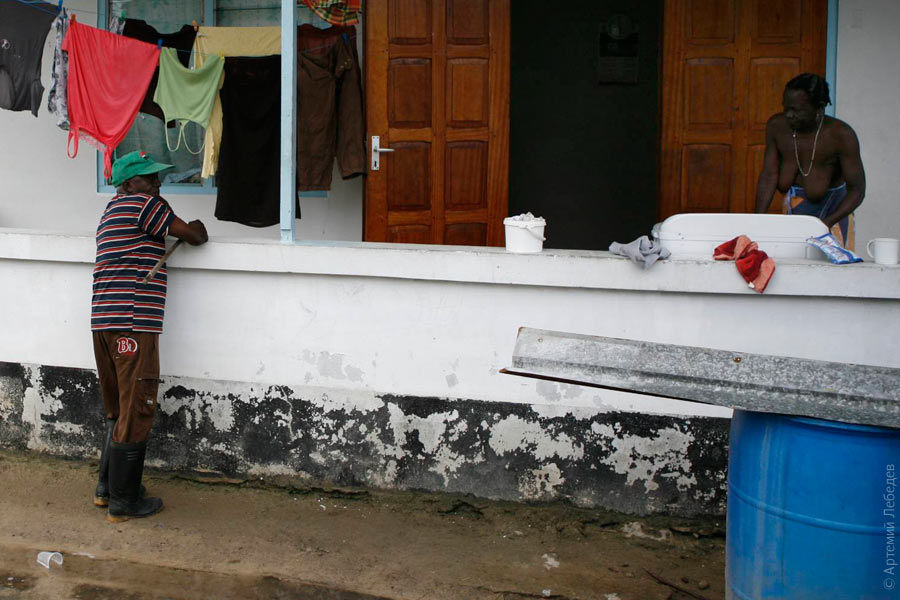 A boy runs out from around the corner, dragging a paint roller through the mud. 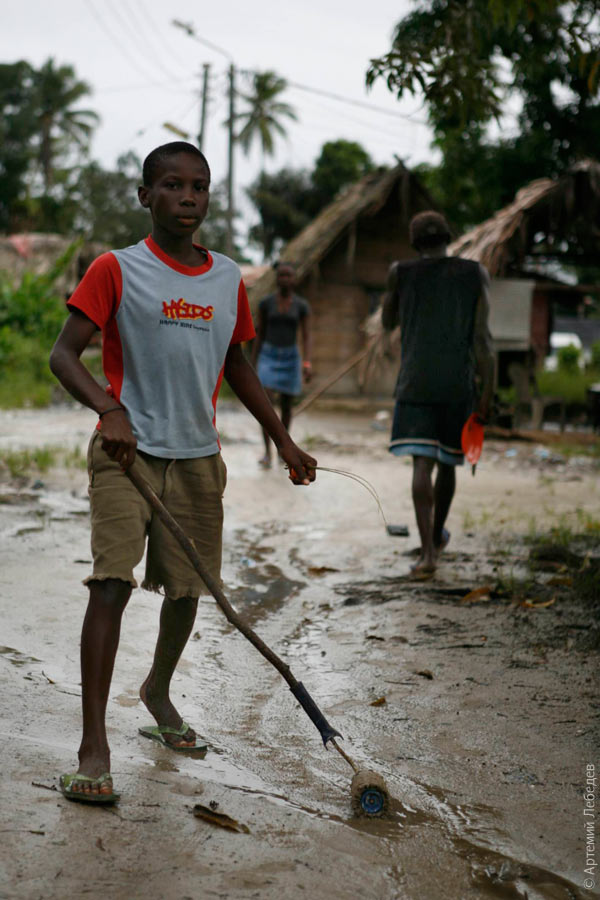 At the very far end of the village, amongst chickens and vines, is a special house (not counting the outhouse). All the women in the village who are currently menstruating have to remain inside this house. 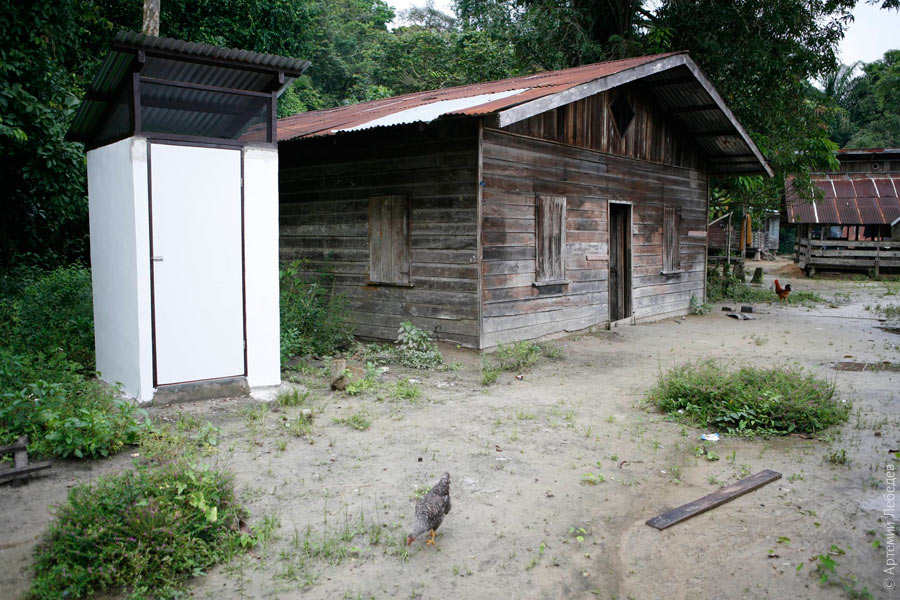 Not a single village woman can violate this custom. 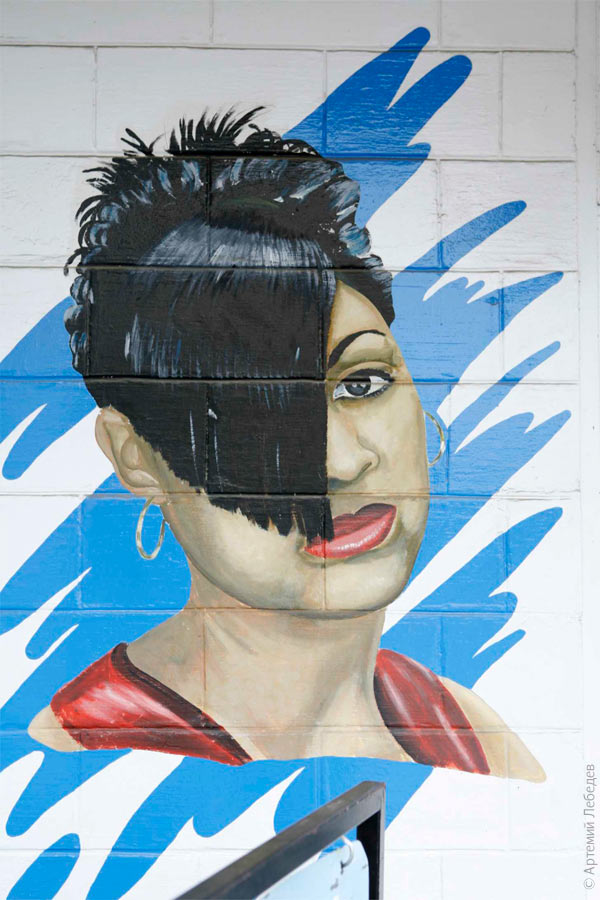 |